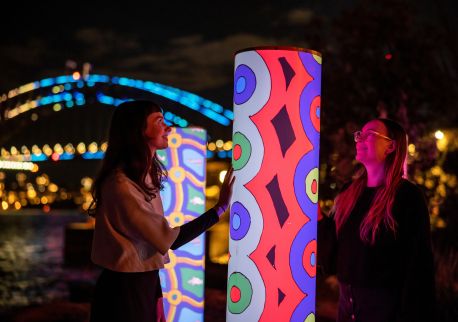Bondi Aboriginal Walking Tours
Overview
Hear about the history of Bondi, from its pre-historical geological formation and how the Aboriginal people used its bountiful resources, to its place today as one of the world’s most iconic beaches.
All participants have individual tour guide system headsets, with a transmitter facility for a translator. After a gentle, downhill walk, the tours finish at the beautiful Bondi Pavilion with a didgeridoo performance. Groups are restricted to between 20 and 30 participants.
There is also the option of finishing the tour with a traditional Aboriginal cultural performance by Diramu Aboriginal Dance and Didgeridoo, with audience participation in a dance.
For quotes and bookings contact Walangari Karntawarra.





















